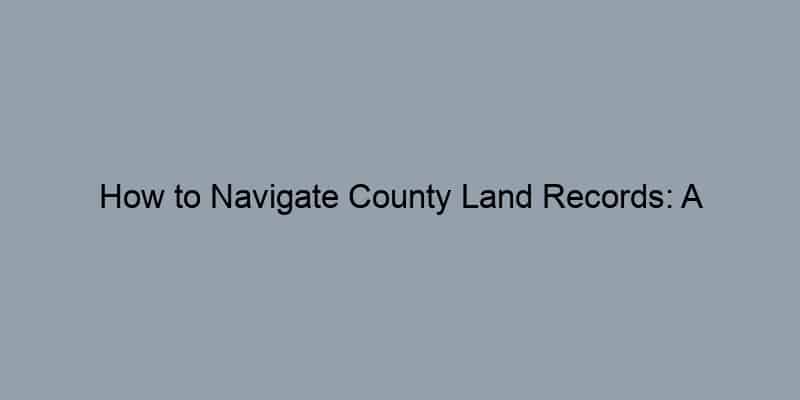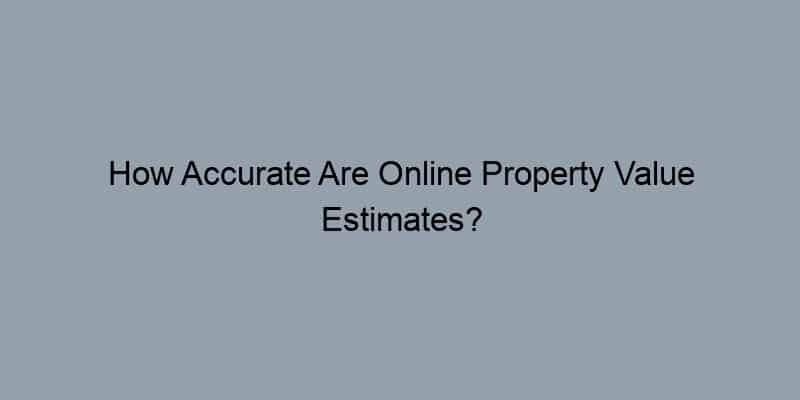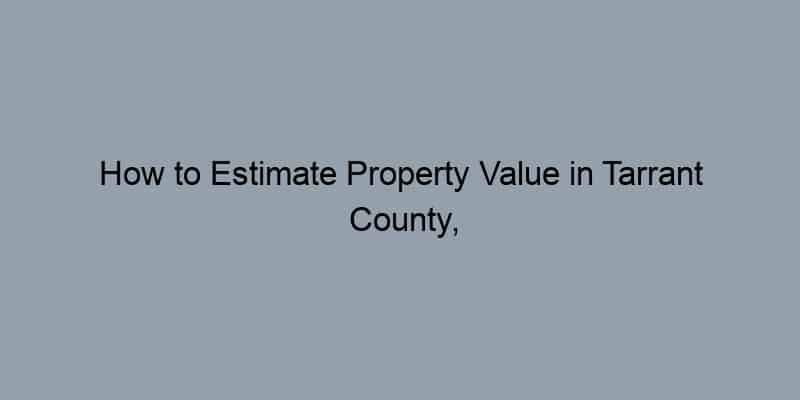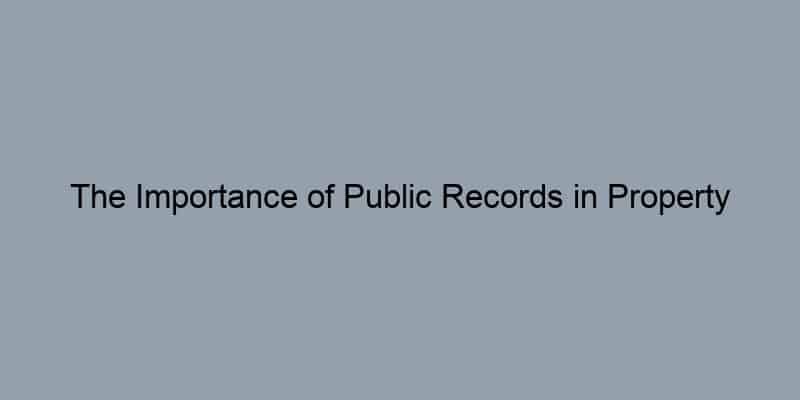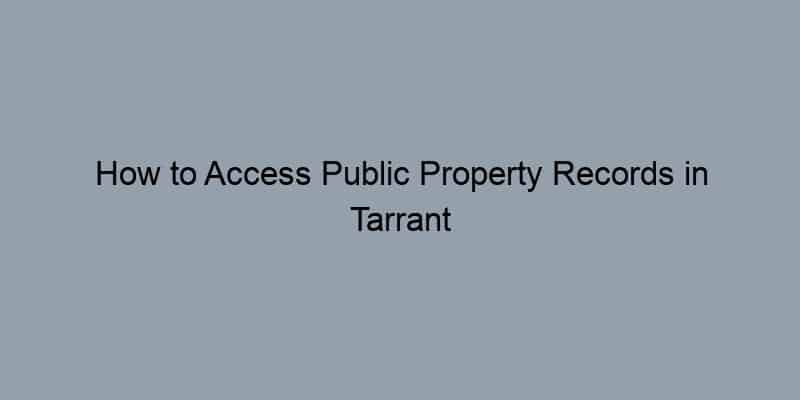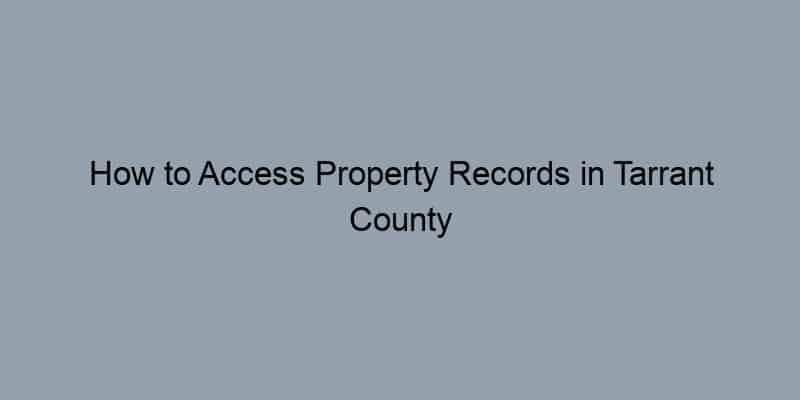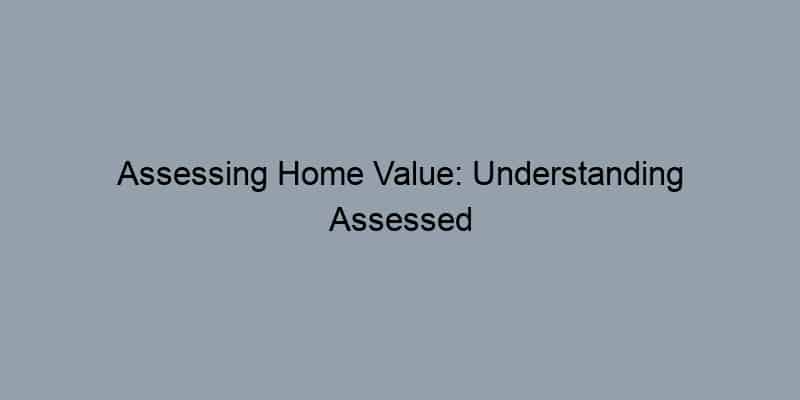County property records are a powerful source of information for homebuyers, investors, real estate professionals, and anyone interested in understanding a property’s history and legal status. These records, maintained by local government offices, offer a transparent look at real estate transactions, ownership history, property value assessments, and much more.
In this blog, we’ll break down what county property records are, what information they contain, how to access them, and how to use them effectively for your personal or professional needs.
What Are County Property Records?
County property records are official documents that track the history, ownership, and legal status of real estate properties within a specific jurisdiction. Typically managed by the county recorder’s office, assessor’s office, or the clerk of court, these records are public and accessible to anyone.
Why County Property Records Matter
Whether you’re buying a home, selling property, or doing due diligence as an investor, property records can reveal critical insights such as:
- Current and previous ownership
- Assessed value and tax obligations
- Legal descriptions and parcel numbers
- Historical sales data
- Outstanding liens or encumbrances
- Zoning classifications and land use
What’s Inside County Property Records?
Let’s take a closer look at the types of data typically included in county property records:
1. Ownership History
Property records list the names of current and previous owners, giving you a clear trail of ownership. This is especially useful when verifying a seller’s claims or identifying absentee owners for investment opportunities.
2. Deeds and Titles
Deeds show how ownership has transferred over time—through sales, inheritance, or foreclosure. These documents also outline any covenants or restrictions tied to the property.
3. Assessed Property Value
The county assessor determines a property’s taxable value based on its market worth and local tax rates. Property records include this assessed value, which is key when budgeting for property taxes or evaluating investment potential.
4. Tax Payment History
You can view whether property taxes are paid up to date or if there are delinquencies. This insight is important for buyers looking to avoid inheriting financial liabilities.
5. Mortgage And Lien Information
Property records can also show active mortgages, second loans, liens from contractors or tax authorities, and even foreclosure filings. Knowing this protects you from buying a property with hidden financial risks.
6. Parcel Maps And Legal Descriptions
These records contain boundary information, lot dimensions, and sometimes survey data. This helps clarify the exact size and shape of a parcel, which is vital for development and zoning considerations.
How To Access County Property Records
Accessing county property records is easier than ever thanks to online databases and digital tools.
Option 1: Visit The County Assessor Or Recorder’s Website
Most counties now offer searchable databases where you can look up property information using:
- Parcel number (APN)
- Owner’s name
- Property address
Websites often include downloadable copies of deeds, maps, and tax bills. Keep in mind that the level of detail available varies by county.
Example: Visit [your county’s recorder website] or search “[Your County Name] property records” to get started.
Option 2: Use A Property Search Tool
Third-party websites like:
- Realtor.com Property Records
- Zillow
- NETROnline
- PropertyShark
offer aggregated property data pulled from public records. These platforms are user-friendly and helpful for those unfamiliar with local government databases.
Option 3: In-Person Requests
If digital access isn’t available or the online records are incomplete, you can visit the county clerk’s office or assessor’s office in person. Bring a government-issued ID and be prepared to pay small fees for printed documents or certified copies.
How To Use County Property Records Effectively
For Homebuyers
Before making an offer on a home, review the property’s tax history, ownership records, and any existing liens. This ensures you’re making a fully informed purchase.
For Real Estate Investors
Property records help investors identify distressed properties, determine equity, and verify ownership before initiating direct mail campaigns or cash offers.
For Homeowners
You can check your property’s assessed value and appeal if you believe it’s inaccurate, potentially lowering your property tax burden.
For Real Estate Agents
Use property records to prepare competitive market analyses (CMAs), verify ownership before listing, and uncover data-driven insights for clients.
For Legal Or Title Professionals
County records are essential in verifying clean title, identifying potential claims, and documenting property transfers during estate planning or litigation.
Tips For Searching County Property Records
- Use multiple search terms: Try different variations of the owner’s name or parcel number.
- Check multiple departments: Some information might reside with the tax assessor, while other details are held by the county recorder.
- Stay updated: Property records are continuously updated. Always verify you’re viewing the most recent data.
Common Terms You’ll Encounter
- Assessed Value: The valuation used by the tax assessor to calculate property taxes.
- Lien: A legal claim against the property for unpaid debts.
- Plat Map: A map showing how land is divided into lots.
- Deed: The legal document proving ownership.
- Encumbrance: Any claim or restriction on the property.
Benefits of Understanding County Property Records
Understanding county property records helps avoid real estate pitfalls and gives you leverage in negotiations. It ensures you know a property’s true value, ownership status, and potential legal risks. Whether you’re a buyer, investor, agent, or homeowner, this knowledge is invaluable.
Final Thoughts
County property records are a treasure trove of valuable real estate data. From ownership verification to financial analysis, these documents play a critical role in property transactions and decision-making. With growing digital access, reviewing these records has never been more convenient.
At Official Property Records, we are committed to providing accurate, up-to-date, and reliable property record information to individuals, real estate professionals, and businesses. Our platform offers seamless access to essential property details, including ownership history, legal records, and market trends, helping users make informed decisions. By leveraging advanced technology and trusted sources, we ensure transparency and efficiency in property data retrieval. Whether you’re a homeowner, buyer, investor, or industry professional, our goal is to simplify the process of obtaining verified property records, making research and decision-making easier and more accessible.
Explore Your Local County Property Records Today
Want to make smarter real estate decisions? Start by exploring your local county property records today. Whether you’re buying, selling, or investing, access to this public information can give you a competitive edge. Visit your county assessor’s website, or use a trusted property search platform to get started!
Need help interpreting property data? Contact a real estate professional or title company for expert guidance. Don’t navigate the property landscape blind—use county property records to your full advantage.





